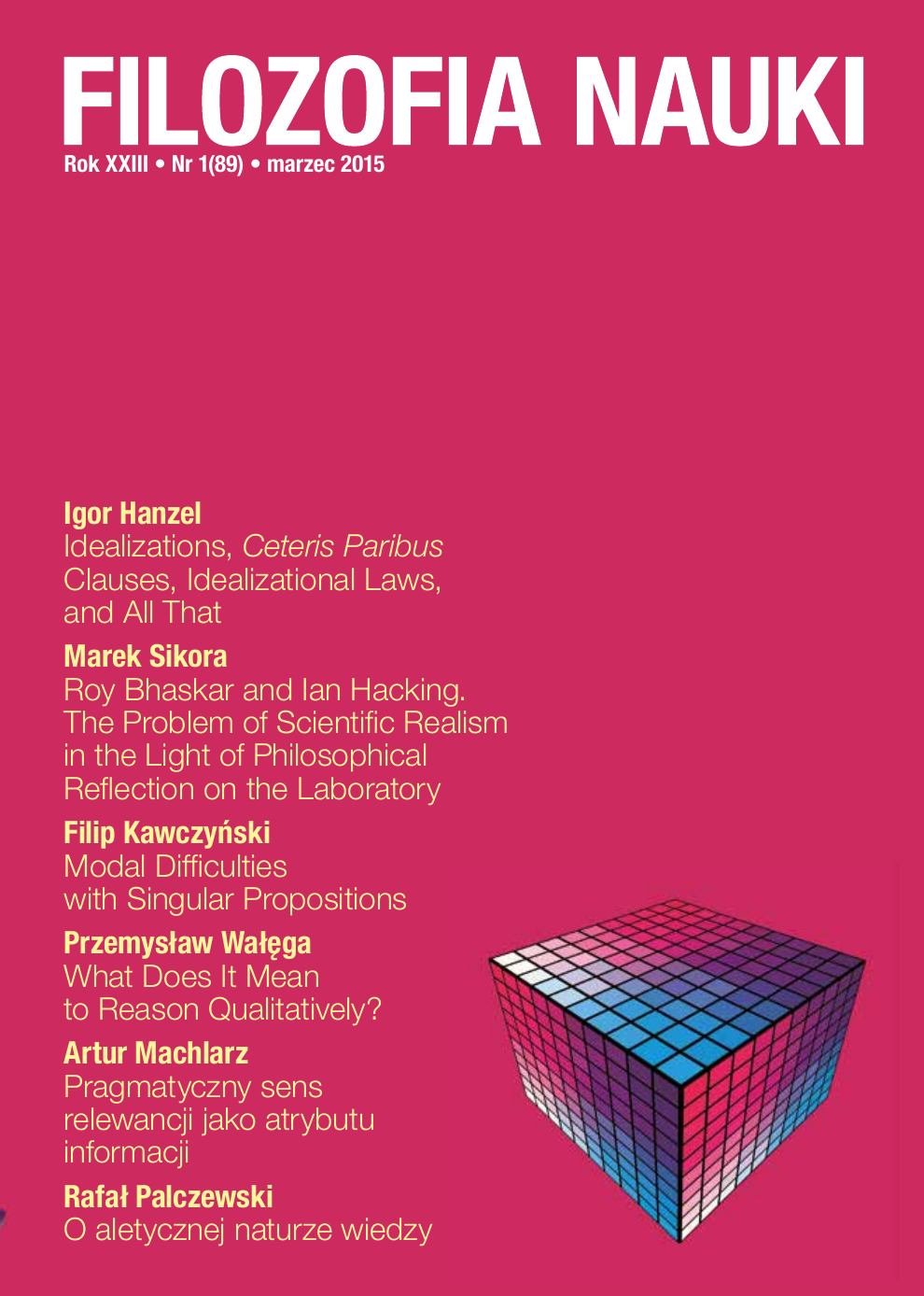Roy Bhaskar and Ian Hacking. The Problem of Scientific Realism in the Light of Philosophical Reflection on the Laboratory
Słowa kluczowe:
scientific realism, scientific antirealism, laboratory, natural sciences, Bhaskar, HackingAbstrakt
The article seeks to explore the problem of scientific realism in the light of phil-osophical reflection on the laboratory. Two philosophical positions within realism are discussed: transcendental realism developed by Roy Bhaskar and experimental real-ism championed by Ian Hacking. It is argued that even though both approaches em-brace the doctrine of scientific realism, their characteristics are so different that they lead to two essentially different visions of science. The differences become especially evident when science is viewed through the prism of the laboratory. To Bhaskar, the laboratory is a place where experimental scientists are able to generate isolated closed systems and use them to discover objective laws of science. By contrast, Hacking claims that experimenters use the laboratory to intervene in the world and, with the aid of apparatus, create phenomena that never arise spontaneously in nature.Pobrania
Opublikowane
2015-03-01
Jak cytować
Sikora, M. (2015). Roy Bhaskar and Ian Hacking. The Problem of Scientific Realism in the Light of Philosophical Reflection on the Laboratory. Filozofia Nauki, 23(1), 27–38. Pobrano z https://www.fn.uw.edu.pl/index.php/fn/article/view/779
Numer
Dział
Artykuły















 Filozofia Nauki | ISSN 1230-6894 | e-ISSN 2657-5868
Filozofia Nauki | ISSN 1230-6894 | e-ISSN 2657-5868